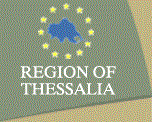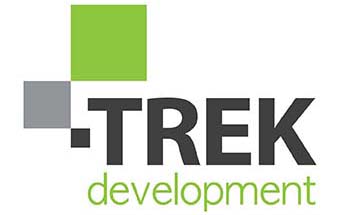Following tender procedure TREK has been awarded by the Region of Thessaly a Corporate Social Responsibility (CSR) intitiative project, focusing on Regional Policies for Responsible Development: evaluation of CSR and economic performance in the MED area.

Following tender procedure TREK has been awarded by the Region of Thessaly a Corporate Social Responsibility (CSR) intitiative project, focusing on Regional Policies for Responsible Development: evaluation of CSR and economic performance in the MED area. The project evaluates the connection between Corporate Social Responsibility (CSR) and levels of innovation and competitiveness in the Mediterranean Area (MED). In this context, 9 partners from 6 E.U. states collaborate within Responsible MED project to exchange knowledge on CSR. This exchange, including interactive workshops, study visits and stakeholder involvement, helps to identify means of increasing economic competitiveness, whilst moving away from negative practices and working conditions. It forms the basis of the methodology development, testing and capitalization phases.
The concrete project output is a common methodology to evaluate and monitor levels of competitiveness in SMEs involved in CSR, in comparison to those who are not. The methodology is linked to an on-line database and tool, to ensure continuous data collection, comparison and ease of access. It is applied in real life situations, in SMEs, in all partner territories.
SMEs represent the vast majority of EU enterprises and provide c.65 million jobs. To achieve the Lisbon innovation and competitiveness goals, public policy must concentrate on supporting innovation and competitiveness in SMEs. In this context, evaluation of CSR as a competitive element becomes ever more important. In parallel, strategic evaluation is vital to public policy, helping to adapt, improve or terminate policy.
Currently different CSR approaches are tested in the Med, and some achieve demonstrable results. However, there is a visible lack of standard procedures, methodologies and tools to evaluate and monitor effectiveness and impact on the regional economy.
In order to develop such a methodology, transnational cooperation is necessary. The approach must build on experiences in CSR from different Med areas, in order to reach common strategies to understand and increase competitive potential of CSR. The approach must be developed and implemented through cooperation among key stakeholders at various levels.
In this context, 9 partners from 6 states collaborate within Responsible MED to exchange knowledge on CSR. This exchange, including interactive workshops, study visits and stakeholder involvement, helps to identify means of increasing economic competitiveness, while moving away from negative practices and working conditions. It forms the basis of the methodology development, testing and capitalization phases.
The concrete project output is a common methodology to evaluate and monitor levels of competitiveness in SMEs involved in CSR, in comparison to those who are not. The methodology is linked to an on-line database and tool, to ensure continuous data collection, comparison and ease of access. It is applied in real life situations, in SMEs, in all partner territories. Following this pilot, the use of the tool, and actions based on results, can be continued and extended. These actions are detailed in action plans for implementation and for transfer of CSR policies from 1 partner to another. All actions are supported by intensive communication activities.
Concrete benefits for the MED economy, project partners and for enterprises and stakeholders include:
. Public Authorities: New territorial understanding, Improved planning of and possibility to modify policy; Support and
. improvement to public policy evaluation and to consultation tools; Action plans for CSR policy evolution;
. Enterprises: Possibility to verify behavior, choices and performance in CSR and innovation. Facilitated access to dialogue with PAs and stakeholders. Opportunities for territorial marketing;
. Local Stakeholders: Possibility to present CSR expectations and needs. Direct involvement in measuring local well being and searching for improved practices.
The overall objective of Responsible MED is to improve uptake of CSR in MED SMEs. This is achieved through increased awareness and proof of the concrete impact of CSR actions and policy in terms of increased competitiveness and innovation, and through programming specific activities to capitalise on existing CSR initiatives.
In order to reach this objective, the project directly involves: minimum 16 public authorities at regional and local level in 8 different Med areas; minimum 108 enterprises through pilot actions; business and civil society organizations and CSR experts through participation in events and in advisory committee.
The specific objectives and related impacts are to:
. Compare regional practices and policies connecting CSR to organizational innovation for economic development in MED regions. Impact: increased knowledge and understanding of CSR practices in the MED;
. Develop and test in real life situations a common methodology and on-line tool to evaluate and monitor the link between CSR approaches, innovation and positive economic performance. Impact: evaluation of CSR/Competitiveness links in 108 enterprises; credible, tested and methodology and tool available to help public authorities implement and measure CSR policy; increased knowledge on real economic benefits of CSR in the MED; Increased SME participation in CSR and innovation actions;
. Evaluate the feasibility of public policy favoring CSR and competitiveness. Impact: evaluation of public policy as input to further policy development and improved governance; improved governance of economic development policy; public authorities provided with necessary elements to build on or implement CSR policies in a way which best promotes the competitiveness of regional SMEs.
. Capitalize on existing CSR experiences through transfer action plans. Impact: 8 detailed action plans (2 Catalan partners collaborate on a common plan) providing input for future CSR initiatives in partner regions;
. Promote dialogue and coordinated action on CSR between economic and social actors. Impact: increased coordination of regional actions for innovation and competitiveness through CSR, and increased number of enterprises involved.
. Present and promote the evaluation methodology and tool in other European regions and at EU level. Impact: potential uptake of methodology in other regions; potential standardization of methodology at EU level; increased awareness of real economic benefits of CSR throughout Europe.


